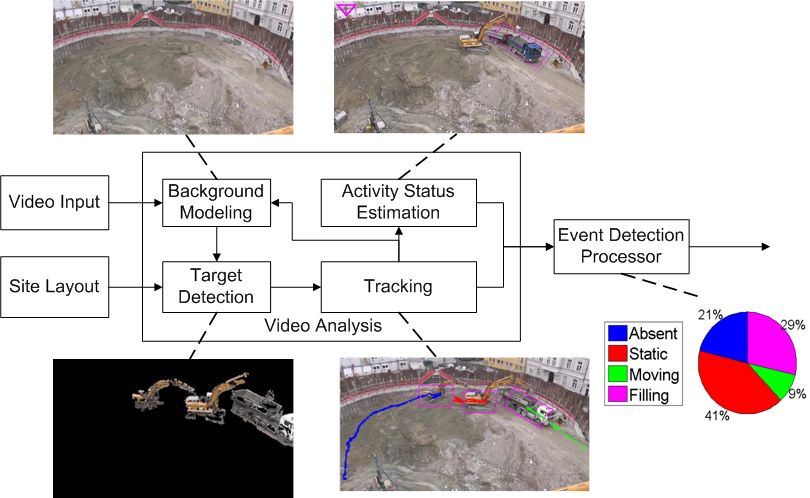

This research seeks reliably and automatically track work progress and multiple resources using video in order to reproduce the daily workflow activities associated to a construction worksite. The goal is to remove the manual nature of construction site activities and progress measurement of processes that involve workers, large machines, and materials. Demonstrating that an active vision system can effectively analyze and assess work-site progress will assist project managers by reducing the time spent monitoring and interpreting project status and performance, thus enabling increased attention to control of cost and schedule. The track data will be interpreted and used to provide understanding of the spatio-temporal evolution of a worksite for automatically generating knowledge about worksite operations. In an information-based framework, much effort is spent acquiring and interpreting information. In a knowledge-based framework, efforts are allocated to making decisions based on the interpreted information.
The image processing and tracking flow diagram below roughly depicts the procedure. In addition to the video stream, the system does require some additional information of site knowledge to be provided. This site knowledge is used to decode the scene activities and make the proper inferences. Usually it consists of site layout information that would be available as part of the site layout plan.

Students: Gbolabo Ogunmakin.
Collaborators: Andre Bormann, RAPIDS Lab / Jochen Teizer, D-Matters / Claudia Rebola.